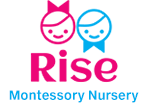Early childhood is the ideal time for every child to learn new words. Because at this stage of life, language development is rapid and highly efficient. The first two years are extremely critical when it comes to language development and expanding vocabulary. And this is the same time most kids spend at home, with parents and siblings. This is why most parents like to do activities with their kids to encourage them to learn new words.
Are you a parent looking for creative ideas to teach your children new words regularly? You could consider implementing simple Montessori ideas that teach your kids to learn new words. Here are 8 ideas that are convenient and highly efficient.
- Talk: This could be a simple idea as parents and children definitely talk with each other. But what you can do next time is to try to implement words mindfully in the conversations. You can talk about anything from their day to what they would like to do.
- Labels: Start labeling items with their names or extra details if there are any. This will help them connect the words with items henceforth.
- Engage: You can engage your children in conversations about photos you both see online, in a magazine, or even while in the streets.
- Sing: Sing rhymes or songs with your children together. Singing is one of the best activities that you can do together to help them learn more words.
- Read together: Reading is perhaps the most important way to teach new words to your kids. But that will only work when your kid absorbs things they read, and they don’t forget it the next day. Reading daily is important but don’t make them bite more than they can chew. It is always a wise idea to choose books with illustrations.
- Ask questions: Ask questions about what you read together. Don’t make it a test – but you can ask them about what they think will happen after some part of the story. This will encourage them to use words to explain to you.
- Use descriptive words: Whether it is a hot day or cold one, words can always be used for describing. The same goes for all other things or experiences in life – the trick here is to choose descriptive words like relaxing, hot, tiring, etc.
- Ask them to write a list: You can ask your children to write a grocery list, or even read the menu while eating out to know the terms and choose their dishes. Not only does this help them build a responsibility but also learn words that they feel necessary in the real world.
Conclusion
While the development of vocabulary is extremely important for reading books for anything in the future years, the most important use of it is in having conversations with people. To express your thoughts or emotions efficiently, basic vocabulary is a must which should be learned in the early years.




